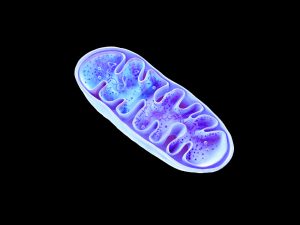 There is solid research behind why 1–3 cups of coffee a day can actually protect against heart disease. Here’s how:
There is solid research behind why 1–3 cups of coffee a day can actually protect against heart disease. Here’s how:
1. It contains antioxidants that reduce inflammation
Coffee is loaded with compounds like chlorogenic acid, which help reduce oxidative stress (which damages blood vessels and LDL cholesterol) It will
lower inflammation, which is a key trigger for plaque rupture and clots
2. Improves endothelial function
The endothelium is the thin lining of your blood vessels. Healthy endothelial means better blood flow, less arterial stiffness, lowers blood pressure spikes.
Studies show moderate coffee intake helps maintain vascular flexibility.
3. Improves insulin sensitivity
Insulin resistance is a hidden driver of heart disease. Coffee (even decaf!) has been shown to help your body respond better to insulin (insulin sensitivity),
lowers blood sugar spikes, and reduces the risk of Type 2 diabetes (insulin resistance is pre-diabetes), which is a major cardiovascular risk factor
4. Lowers risk of stroke and arrhythmias
Some large studies (Framingham Heart Study, UK Biobank, etc.) have shown:
Moderate coffee drinkers have a lower risk of stroke. Coffee doesn’t cause irregular heartbeats in most people—some data even shows less atrial fibrillation
5. May help lower all-cause mortality
Multiple large-scale studies (Harvard, NIH, etc.) suggest coffee drinkers live longer overall—even when adjusting for things like smoking and diet.
Why 1–3 Cups?
That range seems to maximize benefits without triggering negative side effects (like anxiety, jitters, or sleep disruption).
Go way above that, and the stress hormone/cortisol spike may start to undo the good stuff for some people.
We suggest however that you chose organic coffee, which doesn’t have toxins from other growing practices.
See more health advantages at: COFFEE
References:
1. Harvard Health – Drinking coffee linked to healthier hearts and longer lives
Drinking coffee linked to healthier hearts and longer lives – Harvard Health
2. PubMed – Coffee consumption and risk of cardiovascular diseases: A comprehensive review
Impact of Coffee Consumption on Cardiovascular Health – PubMed (nih.gov)
3. PubMed – Unfiltered coffee raises serum cholesterol
Coffee consumption and mortality from cardiovascular diseases and total mortality: Does the brewing method matter? – PubMed (nih.gov)

 Many studies have shown that a large percent of special needs children has a problem with their gut and their metabolism.
Many studies have shown that a large percent of special needs children has a problem with their gut and their metabolism. Metabolism is the process of cells creating energy from food. Well-functioning cells create a healthy body.
Metabolism is the process of cells creating energy from food. Well-functioning cells create a healthy body. Metabolism is the process of cells creating energy from food. Well-functioning cells create a healthy body. The Mitochondria are the powerhouse of the cell. It is where this energy is created. It is used to drive almost every chemical reaction within our bodies.
Metabolism is the process of cells creating energy from food. Well-functioning cells create a healthy body. The Mitochondria are the powerhouse of the cell. It is where this energy is created. It is used to drive almost every chemical reaction within our bodies.